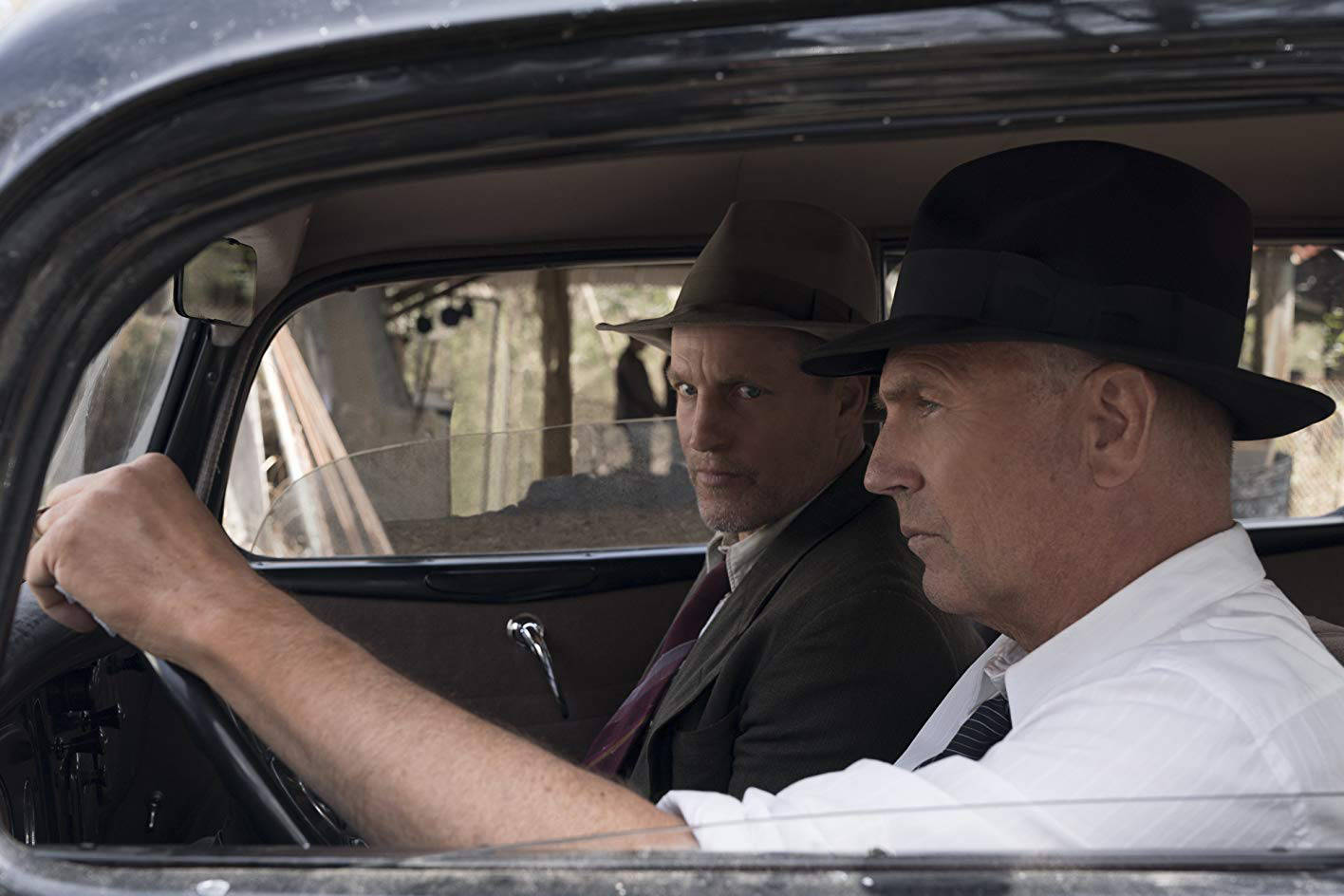Every time I write a new review of a Netflix or streaming movie, it feels less and less like cheating, and I’m still not sure how I feel about that.
This week’s film is the latest from aging Hollywood superstars Woody Harrelson and Kevin Costner and it is anything but a throwaway, straight-to-video affair. “The Highwaymen” chronicles the hunt for notorious criminals Bonnie and Clyde, but does it from an entirely different point of view than the 1967 Arthur Penn classic.
Costner plays Frank Hamer, the most decorated Texas Ranger in history and a man who was several years into his retirement when he is called back into service to join the manhunt for the infamous criminal duo. At his side is Maney Gault, also a well-known Ranger, also in retirement, though the term wasting away might be more applicable.
The infamously cantankerous governor of Texas, Ma Ferguson, had disbanded the Rangers upon her ascendancy and was not eager to reinstate two of that organizations most well-known members. But, after Bonnie and Clyde slipped the net once again, the situation became desperate. Hamer and Gault spend the film trailing the pair, coming close several times, but without anything to show for it. It’s only after they decide to widen their net that they end up in Louisiana, beyond their jurisdiction, at the wide spot in the road that would ultimately prove to be the end of the road for the criminals they are chasing.
John Lee Hancock, who has taken on several other famous Texas stories, including “The Alamo,” does an admirable job here depicting the hard work and dedication of the Texas Rangers. Whereas the Warren Beatty/Faye Dunaway version of the story focuses entirely on the two young lovers, painting them more as rascals than cold-blooded murderers, Hancock’s story avoids showing the Bonnie or Clyde at all, or at least their faces, until the very last few seconds of their lives.
This accomplishes two things. One, it helps to demythologize the pair — the film also takes pains to reiterate the violent nature of their crimes. Focusing on Hamer and Gault makes sure that their disgust is our disgust. And, by withholding their faces until the very end, it makes the final scene all the more shocking. The audience gets to be just as shocked as our heroes at how young the couple truly is. The violence in the film is, indeed, shocking, though there isn’t that much of it.
“The Highwaymen” is a solid police procedural, but there’s more to it than you find in your run-of-the-mill cops and robbers narrative. Hancock and his team are telling a story about aging and utility that, while isn’t exactly new, is very well done. Costner and Harrelson are older, but not so old that they really consider themselves old men. They feel it, however, every time there’s a foot race. Woody Harrelson, in particular, is playing broken down in a way that really resonates. Remaining useful is important, but it’s slipping through his fingers.
“Highwaymen” also has a lot to say about celebrity and the cult following that can result from it. It’s disturbing how popular Bonnie and Clyde become and you can feel it emanating from our two heroes, both men coming from a time before it was commonplace to become famous and beloved simply by being notorious. The most disturbing scene in the film, after the infamous execution of the criminals, is that of the mob that descends on the bullet-riddled car, still carrying the young corpses. The wailing mourners are crazed to get a piece of the pair, diving into the blood spattered wreck grasping at … what? Who knows. The scene is almost more reminiscent of a zombie movie than a 1930s crime film. Hancock knows what he’s doing, and I’m sure the comparison is intentional, but actual photos of the crowd and car from 1934 bear out what the film suggests.
“The Highwaymen” is a solid, entertaining, and thought-provoking piece of entertainment, and, once again, my main complaint is that I had to see this movie on my television screen instead of the big one at the theater. It probably profits Netflix not at all to have regular theater screenings of their films, but I wish filmmakers would demand it. I’m sure this played on the big screen for a weekend in New York, if only to place it in contention for awards, but maybe Netflix should consider buying some theaters. That way they could control the product from production through projection. I don’t know if that’s a profitable idea — I just love going to the movies. Maybe I’m just old-fashioned, too. Grade: A
“The Highwaymen” is rated R for language and limited, but bloody violence.
• By CHRIS JENNESS, For the Peninsula Clarion

